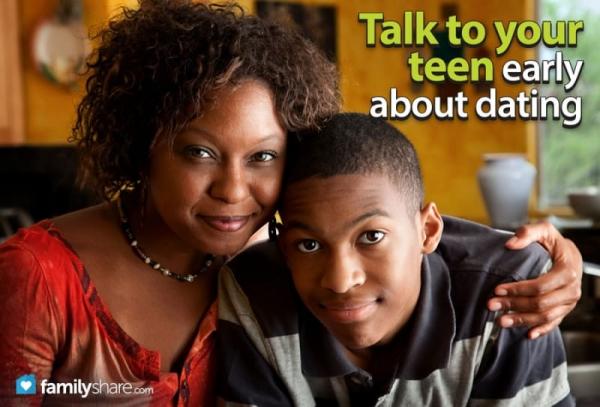
As your children approach their teenage years, you may feel a growing sense of panic. What are you going to do when your kids challenge your authority? How can you ensure that they will make good decisions? Well, while you can't control your kids as much as you might like, you can at least help point them down the right path. One of the biggest milestones of the teenage years is dating. Without your parental advice, your kids are going to find out about dating their own way. And it may not be from the most reliable of sources.
Afraid of being rejected for offering advice? Think about what's more important to you, making your kids happy, or making sure they're safe. Here are some tips for talking to your teens about dating.
Start the conversation early
Don't wait until your teen has already started dating; start this dialog when your children are young. They'll be more pliable when they're younger and won't have time to make as many mistakes. Of course, they will still make some mistakes, but maybe they won't be so costly or numerous. It will seem less confrontational if you break "the talk"� up into mini conversations thrown into the daily routine. That way your teens can still receive all your tidbits of advice and you don't have to make the topic seem taboo or awkward.
Discuss the pros and cons of dating
Your teens might be persuaded that they need to start dating because it seems like all their friends are pairing off or it's the "cool"� thing to do. However, it will be your duty to let them know that there are pros and cons to dating. For instance, have they thought about the money that dating often will involve? How about the time commitment? Do they know how to balance dating and homework? Let them know that you agree, dating is great, but that all things are best in moderation.
Emphasize the importance of respect
Emphasize that your son or daughter should never feel pressured to do something they don't want to do on a date. Dating should be fun, not obligatory. Let them know that you are there for them no matter what happens on a date. They shouldn't feel afraid to come to you if they feel they've done something wrong. You can reinforce your position as a confidante by being an active listener whenever they talk about their friendships and relationships. Also, let them know that they should both respect the people they date and be respected. They should immediately back off if their date asks them to, just as they would expect someone else to extend them the same courtesy.
Set up "dating rules"�
Though they might not act like it, your teens will feel a lot more secure if you offer them structure to base their dating off of. Sit down with them and negotiate some "dating rules"� that both you and they can agree on. You'll want to include rules about curfew, group dating vs. pairing off, appropriate date locations, drivers and transportation, and whether you need to meet the boy or girl or his or her parents first. Yes, your teens might whine and complain, but it's better that they know your expectations from the very beginning. It's hard to lay new ground rules when they're already years into the dating scene.
It might seem awkward or even scary to bring up the topic of dating with your teens, but I've never heard of a parent who regretted doing it. Dating during the teenage years can be fun and exciting and give your children valuable experience in learning how to develop healthy relationships, but it can just as easily turn out the opposite of this. The difference might be as simple as a single conversation.

